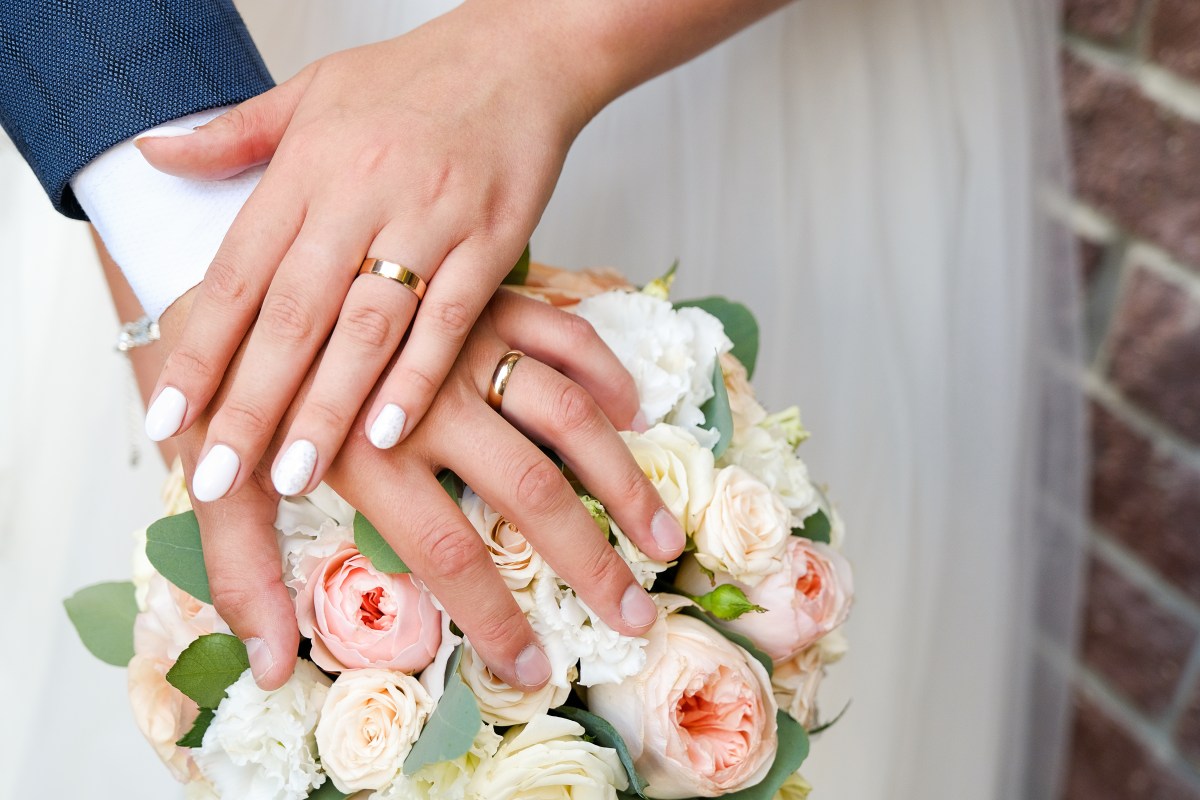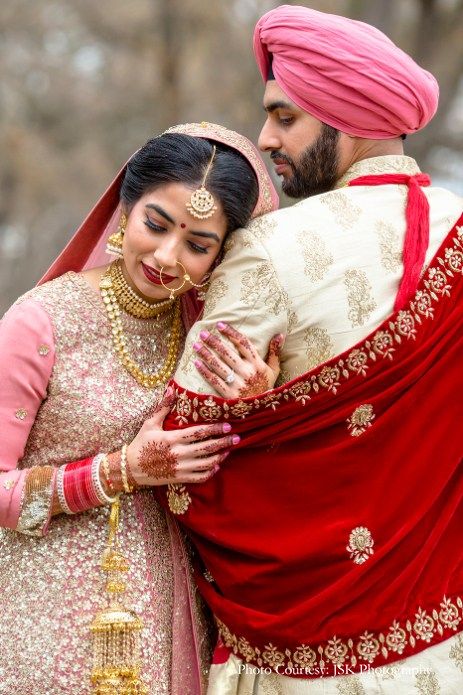How Different Is the Marriage Mentality of the New Generation from the Past?

Table of Contents
- Introduction
- Understanding the “Marriage Mentality”
- The Traditional Marriage Mindset: A Historical Overview
- New Generation Values and Perspectives
- Key Differences Between Past and Present Mentality
- 5.1 Purpose of Marriage
- 5.2 Age and Timing
- 5.3 Gender Roles
- 5.4 Financial Independence
- 5.5 Emotional Compatibility vs Duty
- 5.6 Love Marriages vs Arranged Marriages
- 5.7 Social Media Influence
- 5.8 Views on Divorce and Re-marriage
- Globalization and Cultural Shifts
- Mental Health Awareness and Individualism
- Education and Career-Oriented Lifestyles
- The Role of Technology and Dating Apps
- Challenges of Modern Marriage Mentality
- Are the New Generation More Selfish or Self-aware?
- Bridging the Gap Between Generations
- Conclusion
- Introduction
How Different Is the Marriage Mentality of the New Generation from the Past?
How Different Is the Marriage Mentality of the New Generation from the Past? Marriage has always been a cornerstone of society. For centuries, it defined stability, lineage, social standing, and moral conduct. However, with changing times, societal progress, and evolving individual aspirations, the way people view marriage has undergone a profound transformation. Especially in the last 30 years, the generational gap has widened significantly when it comes to beliefs about marriage.
In this blog, we explore in detail how the marriage mentality of the new generation differs from that of the past. This isn’t just a cultural shift—it’s a redefinition of purpose, roles, expectations, and even emotions within marriage.
- Understanding the “Marriage Mentality”
“Marriage mentality” refers to how individuals perceive the institution of marriage—its purpose, its responsibilities, its emotional depth, and the reasons behind choosing a life partner. It includes expectations from a spouse, tolerance levels, priorities, and the value placed on commitment and companionship.
- The Traditional Marriage Mindset: A Historical Overview
In earlier generations—especially in South Asia, the Middle East, Africa, and parts of Europe—marriage was not just about love; it was about survival, duty, and social prestige. Here’s what defined the traditional marriage mentality:
- Family-first mindset: Marriages were often arranged by families, with the couple having little say.
- Gender roles: Men were providers; women were caretakers.
- Sacrifice and endurance: Marital happiness was often secondary to responsibility and obligation.
- Low divorce tolerance: Staying married, no matter how unhappy, was often considered a virtue.
- Limited personal choice: Romantic love was seen as optional or even dangerous.
In essence, marriage was about duty and continuity, not necessarily fulfillment or self-expression.
How Different Is the Marriage Mentality of the New Generation from the Past?
- New Generation Values and Perspectives
The new generation—especially Millennials and Gen Z—approach marriage with a vastly different lens. Their values are shaped by:
- Exposure to global cultures
- A strong sense of individual identity
- Economic independence, especially for women
- Access to mental health support
- Technology and digital relationships
- Desire for emotional connection over social obligation
They seek a marriage that adds value to their life—not one that defines or confines them.
- Key Differences Between Past and Present Mentality
5.1 Purpose of Marriage
Past Generation:
- A life goal and duty
- Continuation of family lineage
- A social expectation
New Generation:
- Optional, not compulsory
- A platform for personal growth
- Focus on emotional and sexual compatibility
“I will marry when I find someone who aligns with my values”—a common sentiment among today’s youth.
5.2 Age and Timing
How Different Is the Marriage Mentality of the New Generation from the Past?
Then:
- Early marriage was encouraged (often 18-25 years)
- A sign of maturity and responsibility
Now:
- Marriage is delayed (often 30s and even 40s)
- Focus is on education, career, and self-exploration before commitment
This delay allows people to know themselves better but also results in fewer compromises later.
5.3 Gender Roles
Past:
- Fixed roles: men work, women nurture
- “Ideal wife” meant obedient, domestic, and supportive
Present:
- Equal partnership expected
- Both partners can work, share chores, raise children
- Egalitarian dynamics are the goal
The younger generation challenges patriarchy and often refuses to conform to outdated role expectations.
5.4 Financial Independence
How Different Is the Marriage Mentality of the New Generation from the Past?
Then:
- Economic dependence, especially of women on men
- Financial decisions were male-dominated
Now:
- Women are highly educated, earning members
- Shared expenses and split finances are common
- Independence leads to more negotiated relationships
This shift has empowered people—especially women—to choose partners freely and even walk away from toxic marriages.
5.5 Emotional Compatibility vs Duty
Past:
- Emotional needs were secondary
- Compromise was glorified
- “You learn to love after marriage” mindset
Now:
- Emotional intimacy is primary
- Relationship satisfaction is non-negotiable
- Therapy, open communication, and mental health are priorities
Modern couples are more aware of what they feel—and more open about what they need.
5.6 Love Marriages vs Arranged Marriages
Past:
- Arranged marriages were the norm
- Parents decided based on background, status, family honor
Now:
- Love marriages are more common
- Arranged marriages still exist but are “choice-based”—with the couple having veto power
Even in conservative cultures, love before marriage is becoming normalized.
5.7 Social Media Influence
Then:
- Courtship was private and limited
- Reputation was guarded, especially for women
Now:
- Online dating, texting, video calls are common
- Relationship milestones are publicly shared
- But privacy boundaries are also being redefined
Social media has made modern relationships more visible—but also more complex.
5.8 Views on Divorce and Re-marriage
Then:
- Divorce was taboo
- Seen as failure, especially for women
- Re-marriage was rare and stigmatized
Now:
- Divorce is seen as self-preservation
- Re-marriage is a fresh start
- Society is slowly becoming more accepting
Today’s generation believes: “Better a broken marriage than a broken self.”
- Globalization and Cultural Shifts
The internet, media, and global mobility have blended cultural values. Traditional communities are now exposed to:
- Western ideas of love, choice, and freedom
- Diverse relationship structures (cohabitation, open marriages, etc.)
- Alternative views on parenting, gender, and sexuality
This exposure has broadened expectations from marriage, though it also creates conflict with conservative families.
- Mental Health Awareness and Individualism
Previous generations had little awareness of mental health. Enduring suffering silently was seen as strength.
The current generation prioritizes:
- Therapy
- Emotional intelligence
- Respect for boundaries
- Healing before marriage
This makes marriages healthier but also more emotionally demanding.
- Education and Career-Oriented Lifestyles
Earlier, especially in rural areas, education wasn’t always a priority—especially for women.
Today:
- Both genders pursue higher education
- Careers come before marriage
- Many people even question if marriage aligns with their life mission
For some, marriage is a partnership of equals. For others, it’s seen as a potential distraction from ambition.
- The Role of Technology and Dating Apps
Technology has revolutionized courtship and matchmaking.
Old times:
- Community matchmakers, family networks
- Limited options
Now:
- Tinder, Bumble, Matrimonial apps
- People have more choices—but also more confusion
- Ghosting, online cheating, and superficial connections are rising concerns
Technology has made finding a partner easier—but keeping one has become harder.

- Challenges of Modern Marriage Mentality
While the shift has many benefits, it’s not without drawbacks:
- Commitment issues: Fear of settling down
- Unrealistic expectations: Seeking “perfect” partners
- Consumer mindset: Treating relationships like replaceable products
- Loneliness: Many remain unmarried by choice but later feel isolated
- High breakup/divorce rates: Due to low tolerance for discomfort
Balance is key—freedom and commitment must go hand in hand.
- Are the New Generation More Selfish or Self-aware?
Older generations often label today’s youth as selfish and impatient. But is that true?
Maybe not.
Today’s generation is:
- More self-aware
- More expressive about needs
- More willing to walk away from toxic situations
They’re not necessarily selfish—they just value mental peace over social approval.
- Bridging the Gap Between Generations
To reduce friction between generations, open conversations are vital:
- Parents must learn to respect modern choices
- Youth should honor elders’ experiences, even if they choose differently
- Marriage educators, counselors, and religious leaders need to adapt messages to the times
Mutual empathy is the bridge between tradition and progress.
- Conclusion
The marriage mentality of the new generation is radically different from that of the past. What was once a duty is now a choice. What was once about survival is now about connection. What was once about compromise is now about compatibility.
This change is neither good nor bad—it’s evolution. Every era creates its version of “ideal marriage” based on what people know, need, and believe.
As we move forward, the key is not to choose one mentality over the other, but to understand that both have value. The past teaches stability, the present teaches self-respect. The future of marriage lies in balancing both.
- A Generational Deep-Dive: Boomers, Millennials, and Gen Z
To understand how marriage mentality has evolved, we must examine three key generations:
Baby Boomers (born 1946–1964)
- Marriage was often non-negotiable.
- Most were married by their early 20s.
- Divorce was highly stigmatized.
- A strong sense of duty and gender roles prevailed.
- Emotional needs were often suppressed.
Marriage for boomers was about social acceptance, family pressure, and financial interdependence. Many couples stayed together regardless of emotional dissatisfaction.
Millennials (born 1981–1996)
- Delayed marriage to pursue career and education.
- More accepting of divorce and live-in relationships.
- Prioritize compatibility, shared values, and mutual respect.
- Mental health awareness emerged.
Marriage for millennials became about balance: romantic love + practicality. They still value commitment but demand emotional reciprocity.
Gen Z (born 1997–2012)
- Many are skeptical about marriage altogether.
- Believe in fluid identity, emotional autonomy, and open communication.
- High exposure to online relationships and digital dating.
- Often avoid long-term commitment unless it adds meaning.
Marriage for Gen Z is less about social construct and more about personal fulfillment and authenticity.
- Case Studies: Then vs Now
Let’s analyze three hypothetical scenarios:
Case 1: Arranged Marriage Pressure
Then (1970s):
A 22-year-old woman in a rural town is told to marry her cousin. She barely knows him. Saying “no” means dishonor to her family.
Now (2020s):
A 27-year-old woman receives proposals through an online marriage platform. She evaluates each based on compatibility, goals, and conversation. She rejects the ones that don’t feel right—without guilt.
Insight:
Freedom to choose a life partner is no longer a luxury; it’s an expectation.
Case 2: Marriage After Career Establishment
Then:
A man is encouraged to marry right after his first job—around age 23—regardless of career maturity.
Now:
A man in his early 30s delays marriage until he becomes emotionally and financially ready. He wants to give his best to his partner, not just fulfill a checkbox.
Insight:
Responsibility now includes emotional maturity, not just financial capacity.
Case 3: Divorce Stigma

Then:
A woman facing emotional abuse stays in the marriage for the children. Her parents advise her to “adjust.”
Now:
A woman seeks therapy, discusses her situation with friends, and eventually leaves the marriage. She rebuilds her life and finds love again at 40.
Insight:
Personal dignity now trumps social fear in many circles.
- Cultural Contrasts: East vs West
Marriage mentality also varies across geographies.
Western Perspective
- Marriage is increasingly optional.
- Cohabitation is normalized.
- Marriage often follows long dating periods.
- Prenuptial agreements are common.
Eastern Perspective
- Marriage is often expected by a certain age.
- Family opinion plays a strong role.
- Arranged marriage remains prevalent but modernized.
- Divorce is increasing but still carries social implications.
Yet even in the East, a cultural fusion is happening. Urban youth are blending traditional values with personal choice.
- The Role of Feminism and Equality Movements
Feminism has played a pivotal role in transforming marriage mentality. It has:
- Empowered women to delay marriage for education or independence
- Challenged toxic gender roles
- Fought against marital abuse and normalized saying no
- Encouraged partner equality
Modern relationships increasingly reflect partnership over patriarchy. Couples now question: “Are we both growing in this relationship?”
- Digital Dating and Long-Distance Relationships
With apps like Tinder, Bumble, and MuslimMatrimony, relationships now start online. This has both pros and cons:
Pros:
- More choice and autonomy
- Cross-cultural relationships flourish
- Digital intimacy develops before physical contact
Cons:
- Ghosting and flakiness
- People treat relationships as consumable
- Decision fatigue: too many options, hard to commit
Digital love is redefining how people bond—and also how they disconnect.
- Shifting Views on Parenthood and Fertility
Marriage was once seen as the gateway to having children quickly. Now that link has changed:
- Many couples delay parenthood or choose to be child-free
- Fertility technology (IVF, egg freezing) enables flexible planning
- Co-parenting without marriage is becoming more visible
- Adoption by single individuals is more accepted
The modern mentality is: “First secure ourselves, then think of expanding family.”
- Marital Counseling and Pre-Marriage Education
Earlier generations rarely sought professional help for marriage. Now, it’s becoming common to:
- Attend pre-marital counseling
- Explore compatibility assessments
- Learn about communication styles, conflict resolution, and love languages
This psychological and emotional preparation reduces false expectations and helps build stronger foundations.
“Marriage is not about finding the right person, it’s about becoming the right person.”
— Modern marriage educators
- Marriage as a Choice, Not an Achievement
For the new generation, being single is not a failure. It is:
- A valid life path
- A time for self-discovery
- Often more peaceful than a bad marriage
Older generations often viewed unmarried individuals with pity. Today, being single by choice is seen as strength, not deficiency.
This shift is especially empowering for women, who were once forced to rely on marriage for survival or identity.
- Evolving Wedding Culture: Simplicity over Extravagance
Millennials and Gen Z are also changing how weddings look:
- Minimalist weddings are replacing lavish, showy events
- Elopements, destination weddings, and intimate gatherings are popular
- Spending is based on value, not social status
This shows that marriage is becoming more about the couple, less about community performance.
- Marriage and Religion: New Interpretations
In the past, religion dictated how marriages were formed, managed, and even dissolved.
Now:
- Youth reinterpret religious texts with empathy and equality
- Interfaith marriages are increasing
- Many identify as spiritual rather than strictly religious
This re-interpretation allows for marriages rooted in values, not just rituals.
- Impact of Pandemic on Marriage Mentality
COVID-19 accelerated many shifts:
- People realized the value of companionship
- Divorce rates spiked in some regions due to constant tension
- Others used lockdown time to deepen emotional bonds
- Online marriage services saw a boom
The pandemic reinforced that emotional connection and adaptability are more important than status or tradition.
- Is the New Generation Afraid of Marriage?
It’s not fear—they are cautious. Their delay and hesitance are driven by:
- Watching parental unhappiness
- High expectations of emotional health
- Financial insecurity
- Fear of losing individuality
But when they do marry, it’s often more intentional and informed.
- The Role of Parents: From Controllers to Guides
Parental roles in marriage decisions have evolved too:
Then:
- Absolute authority
- Matchmaking based on class, caste, or ethnicity
- “You will learn to love after marriage.”
Now:
- Advisory role
- Respect for the child’s preferences
- Some even support inter-caste/interfaith choices
The healthiest families balance tradition with trust.
- Hybrid Models: Tradition Meets Modernity
Some couples create their own unique marriage frameworks:
- Arranged marriages with dating periods
- Dual-income, no kids (DINK) lifestyle
- Gender-neutral roles
- Living separately while married (LAT—Living Apart Together)
This adaptability shows that marriage is no longer one-size-fits-all.
- What Future Marriage Might Look Like
Looking ahead, we may see:
- AI matchmakers that analyze deep compatibility
- Virtual weddings in the metaverse
- Legal recognition of unconventional partnerships
- Cultural hybrids due to globalization
- Shared parenting without romantic involvement
As humanity evolves, so will the definition of union.
- Final Thoughts: Should We Mourn the Old Ways?
Not at all.
What we’re seeing is evolution, not erosion. Old values like loyalty, family, and commitment still matter—but they’re being practiced with conscious choice, not compulsion.
Where older generations emphasized endurance, new ones emphasize alignment. Both are valid, but context matters.
- Conclusion: A Marriage of Mindsets
So, how different is the marriage mentality of the new generation?
Radically different—and yet, deeply human.
At its core, everyone—regardless of era—wants:
- Love
- Security
- Respect
- Understanding
- Companionship
The means have changed. The media have changed. But the emotional longing remains eternal.
The past offers roots. The present offers wings.
A wise marriage balances both.
























